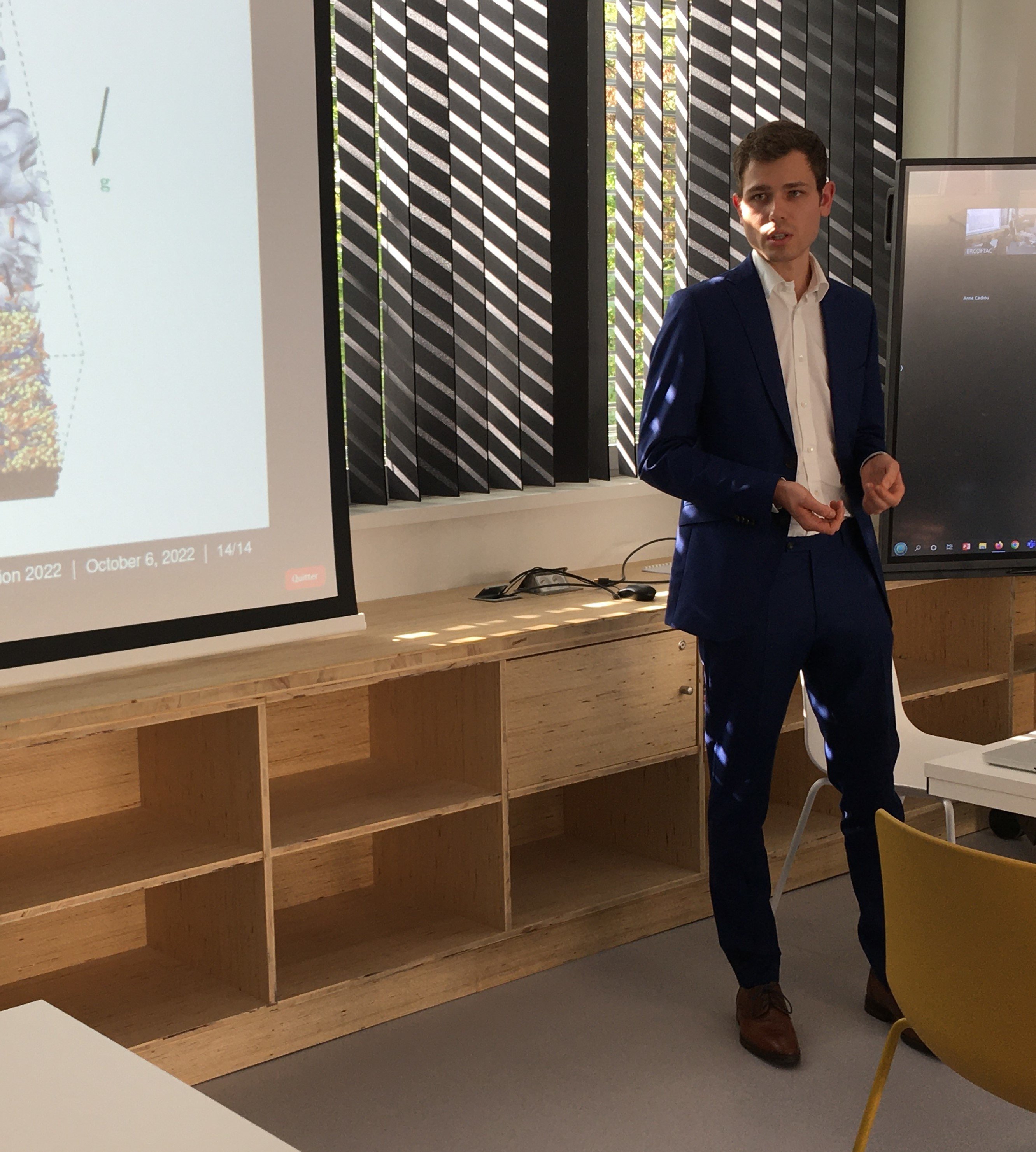17th ERCOFTAC Da Vinci Competition 2022 - Interview with Da Vinci Finalists
Marcus Scherer - finalist
of 17th Da Vinci Competition 2022
Marcus Scherer
Karlsruhe Institute of Technology, Germany)
Turbulent coherent structures, secondary currents and sediment ridges
- What is the topic of your PhD thesis?
In my PhD thesis, I have addressed the question of how sediment patterns like subaqueous sand dunes form on natural riverbeds under the action of a turbulent flow by means of particle-resolved direct numerical simulations. The understanding of such fundamental morphodynamic processes is of central relevance both from an ecological and an engineering point of view, as the presence of sedimentary bedforms on the riverbed can severely modify the global flow characteristics of the river and with it the functioning of the aquatic ecosystem. The high-fidelity simulations that have been performed in this work have allowed us to identify a dominant interaction mechanism between individual turbulent flow structures and the erodible riverbed which gives rise to streamwise elongated sediment ridges. The investigated flow structures typically organise in such a way that there is, on average, a mean secondary flow in the river cross-section that enhances the exchange of momentum and heat between the free surface and the sediment bed, with possible impacts on the ecological state of the river. These observations answer the question of causality in the turbulence-riverbed interaction and will therefore contribute to an improvement of existing reduced-order simulation models that are currently the state of the art in the hydraulic engineering practice.
- What motivates you in your work?
Turbulence and its inherent complex dynamics have fascinated me from my very first contact with the topic and the fact that we still do not really understand many of the underlying processes drives me in my daily research. Turbulence in aquatic ecosystems is a particularly exciting field, as studying turbulence is here not an end in itself, but can be seen as the first step to understand more complicated mechanisms such as sediment transport that are driven by turbulent flows. Being able to predict the dynamics of natural rivers is of significant relevance for society in times of more severe and more regularly occurring flooding events - I therefore consider it as a privilege that i can contribute with my work and my fascination for turbulence to the research in a field that is of such importance for our every day life.
- What does the Da Vinci competition mean to you?
I feel very honoured that my work has been selected as one of the finalists, as the Da Vinci award is the most prestigious award on turbulence research a young European scientist can be presented with. Many very talented researchers that have made their career in science have participated in the Da Vinci competition throughout the years and following them by being nominated as one of the finalists is precious to me.
- Where do you see yourself in five years?
Our society is at a turning point facing many challenges, from which climate change is surely one of the most dangerous and urgent ones. We can only hope to succeed in limiting the temperature increase and in adapting our life to the consequences of climate change with the support of a strong scientific community. Fluid mechanics will be a key discipline in this regard both on a fundamental level and in the application, in designing new sustainable industrial processes as well as in investigating the ecological consequences of the greenhouse effect. Keeping my end up and contributing in one or the other way to these massive transformations we are confronted with is my strong wish.
- What advice would you give to new PhD students starting in fluid mechanics?
Enthusiasm about fluid mechanics and turbulence in general and on the specific topic in particular certainly are the basis for a successful PhD project, but just as important are a high level of curiosity and creativity: a PhD project is `growing' over the time you are working on it and your own interests and ideas will effectively decide in which direction the work will develop.

